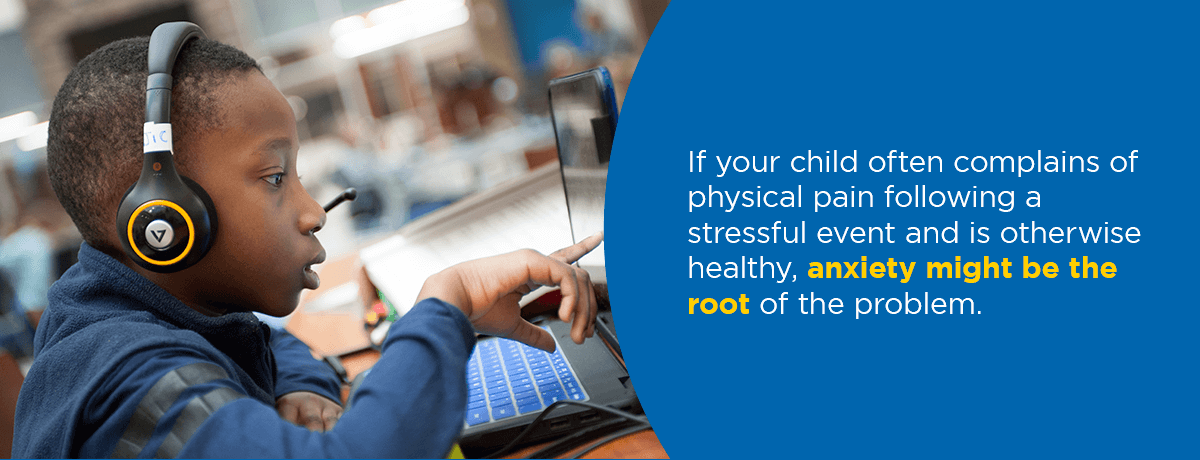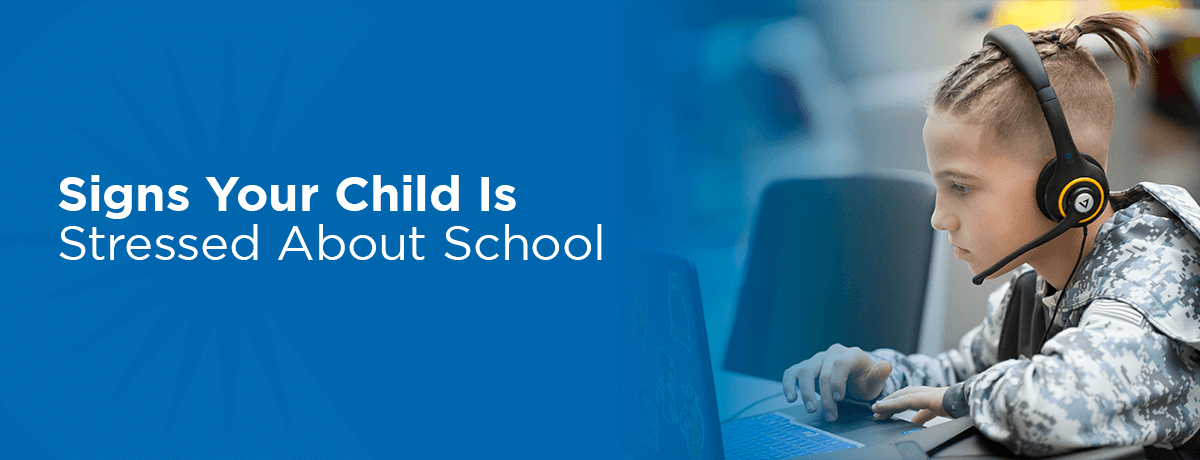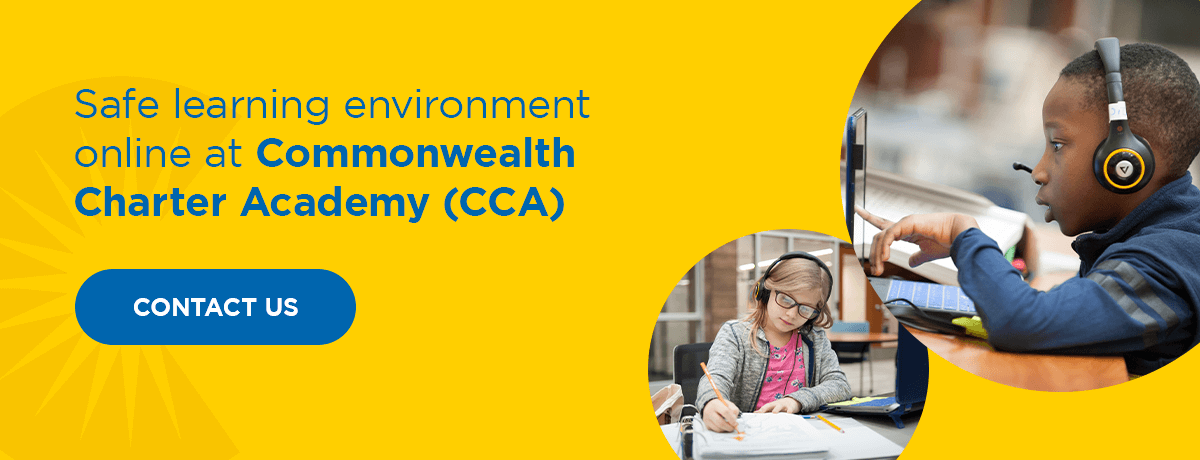Are you worried that your child has more than a few butterflies about going back to school? The back-to-school season is a busy time filled with preparations for the upcoming school year. While you are focused on buying folders and pencils, your child might be developing anxiety about all the changes a new school year brings.
It is normal for children to experience some worry before starting a new year, but intense nerves can develop into anxiety. Back-to-school anxiety can lead to changes in behavior and academic performance, but there are strategies to help a child with anxiety about school if they are experiencing excessive stress.
What Types of Anxiety Do Children Struggle With at School?
At the beginning of each school year, your child must adapt to a new environment. They often return to school with a different teacher, classroom, schedule, and sometimes classmates than they are used to. Managing all of these changes can cause various anxiety disorders to appear.
Here are some of the most common types of anxiety in children:
- Separation anxiety: A child with separation anxiety experiences significant worry or stress while away from their home or parents. This concern can affect their social performance because they refuse to attend playdates and parties without a parent. Their academic performance might be affected as well, as they focus their attention on what might happen to them or their family while they are apart.
- Social anxiety: As a child becomes more aware of what other people think about them, they may develop social anxiety. A child with this form of anxiety has intense fear that they will be embarrassed in front of their classmates. They worry about how they appear to others and avoid attention. They might shy away from participating in class, starting conversations with others, and attending social gatherings.
- Generalized anxiety: A student with generalized anxiety worries about more than one specific situation at a time. Their mind is distracted by concerns about their physical safety or their grade on a test. They often struggle to concentrate on other things, which strains their performance in the classroom and social environments.
- Obsessive-compulsive disorder (OCD): A child with OCD obsesses over their fears, causing anxiety, which they attempt to alleviate by performing compulsive behaviors. Children may obsess over safety, germs, or organization. Examples of compulsive behaviors include checking the lights multiple times to make sure they are off, tapping something a specific number of times, washing or cleaning in excess, or saying a word or phrase repeatedly without reason. The child focuses on their obsessions, which distracts them from school and other activities.
How Do Children Experience School Anxiety?
Identifying an anxiety disorder in your child is the first step to helping them manage it. Anxiety can present itself in misleading ways, so it’s important to know the most common signs.
If you notice that your child is not completing their assignments on time, this may be a sign of anxiety. Anxiety affects academic performance by filling your child’s head with worry. Children are focused on their concerns rather than concentrating on their classes and schoolwork. Often mistaken for a learning disorder, falling behind in school can be caused by anxiety as well.
It may be surprising that anxiety can cause physical symptoms to appear. The autonomic nervous system reacts to threatening stimuli like stress, resulting in headaches, nausea, and abdominal pain. If your child often complains of physical pain following a stressful event and is otherwise healthy, anxiety might be the root of the problem.

Adults often attribute children’s tantrums and meltdowns to anger issues or behavioral problems. However, disruptive behavior and aggression can also be a symptom of anxiety. Children with anxiety experience a heightened sense of fear when confronted with stressful situations like embarrassment or separation from their parents. Without the tools to manage their anxiety, the fight mechanism in their brain may become activated, resulting in a fiery display of panic.
Other children manage their anxiety by avoiding stressful situations altogether. If your child avoids socializing with their classmates and shows disinterest in after-school programs, they might be experiencing social anxiety. Children are still learning how to process their emotions, so recognizing these behaviors in your child will help them get the support they need to manage their stress.
What If My Child Refuses to Attend School?
Sometimes, children can become so anxious that they refuse to attend school. These instances often follow a long vacation, an extended period of sick days, or the summer break. Your child may be nervous about returning to their old schedule, which some reassurance can remedy. Other times, children are reluctant to go to school for weeks or even months. They might visit the nurse’s office often and get sent home early regularly. To help your child feel comfortable attending school, take time to understand why they want to stay home. Talk to your child and their teacher to make sure they aren’t being bullied or trying to avoid a big test. Understanding why they are refusing to go can help you provide the necessary care to help them feel confident and happy at school.
Alleviating Back-to-School Stress
It’s tough to watch your child struggle, not knowing how to deal with school anxiety. Ease their mind with these stress-relieving activities:
- Deep breathing: Practice taking deep breaths with your child for several minutes to help them calm down.
- Exercise: A few hours of physical play or exercise works wonders to relieve stress.
- Journaling: Children can release their emotions by writing or drawing them out in a personal journal.
- Nutrition: Researchers have found a relationship between children who eat a healthy diet and better mental health.
- Sleep: Ensure your child gets the proper amount of sleep so their mind is ready to face the day.
How Our Cyber School Provides a Safe Haven
Commonwealth Charter Academy (CCA) provides a flexible online education that will meet your child’s unique needs. Our cyber charter school serves K-12 children with a customizable learning experience that is safe from bullying and other sources of anxiety that affect their academic performance.
We help reduce anxiety in children with a self-paced curriculum. Each child can progress at their own speed. We remove the intimidating social expectations that cause anxiety by bringing the classroom within the comfort of home. Our teachers welcome parental involvement to develop lessons that will promote the most progress for your child. CCA is a safe haven where children can overcome their anxiety and achieve social and academic success.
Contact us today to learn more about how CCA promotes a personalized, engaging, and safe learning environment online so your child’s mind can flourish.




